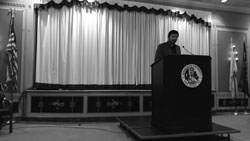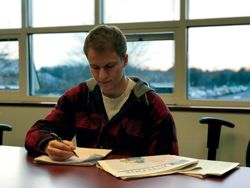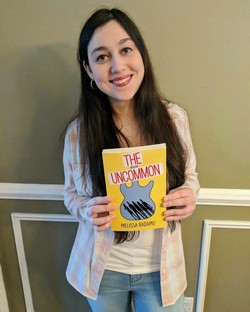On a campus so enriched with a plethora of diverse events, it would be a shame if students did not attend these events. For many humanities courses at the University, there is a mandatory attendance requirement for students to attend a specific event for the course.
Many students shudder at the word “mandatory” because of their busy and hectic lives. Students choose classes to fit their schedules to a T; so, hearing that there is a mandatory event outside of the class time frame that one has to attend is irksome for most.
Lucia Bailey, a sophomore English student, said, “At times I wish the attendance was not mandatory, because if I am not on campus I find myself driving 45 minutes from my house to get there to attend the event.”
Dr. Susan Starke, associate professor of English, who has required her Shakespeare classes to attend simulcasts of popular Shakespeare plays studied in class, said, “As long as the professor offers an alternative assignment for students whose prior obligations literally don’t permit attendance at a special event, I feel it’s reasonable. I put it in the syllabus so students know from the start of the course what they are getting into.”
It seems as though classes in the humanities are more likely to assign these mandatory attendance events than the sciences. Dr. Merrily Ervin, Coordinator of School of Science General Education Courses, explains why the School of Science does not require students to attend events outside of class: “Students’ schedules vary and most likely, not all students would be able to attend an event that does not coincide with class time.”
Ervin added, “Even if you just offer extra credit for attendance, it is not fair to those who are unable to attend, unless you offer them an alternative way to get extra credit.”
However, Bailey, who was required to attend an installation of the Visiting Writers Series for one of her English courses, agrees that these events are applicable to class and enjoyable: “I love going to these events because I feel as if I learn so much information from the authors. I get different perspectives from different authors and see the way they write compared to someone else.”
Professors do not force students to attend out of class events for no reason. In most cases, the events required are relatable to course materials and/or concepts. Most professors require students to go to events because of their relevance to the courses they are teaching.
Starke commented, “Studies show that requiring students to participate in co-curricular or outside-class events related to the course content encourages engagement in the course material and knowledge retention. Students remember these events more than they would remember just another lecture.”
Jesi Halprin, a senior English student, attended a recent Visiting Writers Series for a class, and reflected, “My class read The Unseen World [a novel written by Liz Moore, the event’s writer] this past week and being able to hear Liz Moore read from her book allowed me to understand more about the voice that she used for the book.”
Another aspect of the classroom that requires students to do work on their own time is volunteer work. In his First Year Seminar course, Animals, Life, Death, Kindness, and Sin, Chair of Health and Physical Education and associate professor, Dr. Chris Hirschler, requires his first year students to volunteer hours at the local Monmouth County SPCA.
Hirschler believes that service work outside of the classroom is extremely beneficial to students: “Service-learning experiences improve students’ professionalism, expose them to organizational policies and procedures, and often involve helping those in need.”
“Faculty members incorporate course material that addresses real life problems and situations students will face in the course of their service and in life after Monmouth,” Hirschler continued.
By giving students the responsibility of getting their service hours off-campus and going to these various events, professors are encouraging life skills that students should harness and further develop. Furthermore, they are tools that help students understand fully and see a real life application of what they are learning in their courses.
PHOTO TAKEN by Alexandria Afanador




